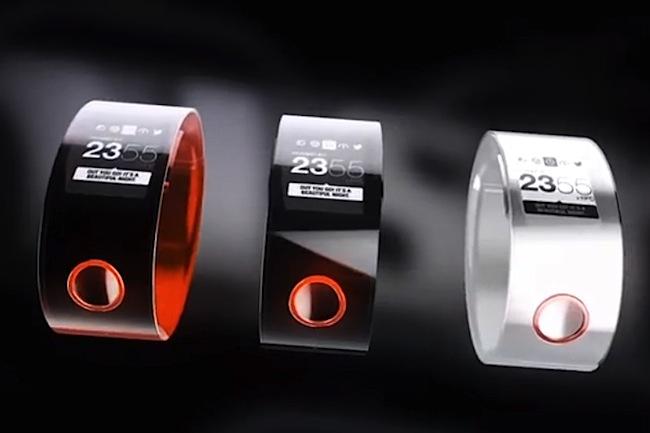
Smartwatch launches may be few and far between at the present time, but the signs are that the trickle will before long become a steady flow, and judging by Nissan’s surprise announcement Monday, every square inch of the market involving the high-tech device will be exploited to the full.
The Japanese car company has just pulled the wraps off the Nismo smartwatch, a device it claims is the first to connect driver and car.
Though currently a concept device, the car maker is set to display the wearable tech at the Frankfurt Motor Show, which kicks off on Thursday. Initially designed for owners of Nissan’s Nismo performance cars, the tech could conceivably be rolled out to drivers of others vehicles in the company’s line-up if the initial version proves popular.

The smartwatch connects to the car via Bluetooth LE and a smartphone app, meaning it’s designed to act as a companion device much in the same way that the Galaxy Gear pairs with the Galaxy Note 3 and 10.1.
Features of Nissan’s wrist-based gadget include the ability to monitor the efficiency of your connected car through, for example, average speed and fuel consumption readings. Up-to-date road and traffic information is also shown on the display, as is biometric data via the watch’s heart rate monitor. According to the video (below), social media message notifications can also be pushed to the device.
Nissan’s smartwatch uses a lithium battery and charges via a micro-USB port, which should keep it juiced up for seven days under normal usage conditions.
Available in black, white and red, the Nismo is controlled using two buttons and fits onto the wrist by way of a simple snap-fit mechanism.
Bizarrely – though admittedly it may appeal to the nerdiest of Nissan fans – the Nismo’s packaging will, according to Nissan Europe’s Gareth Dunsmore, “be made using tyres and rubber from the racetrack.”
By way of explanation, Dunsmore adds, “As Nismo is the performance arm of Nissan, we wanted a way of integrating Nismo’s heritage in racing into this futuristic innovation.”
There’s no word yet on when the watch might become available, but its striking design will certainly be of interest to others looking to launch a similar device.
[Source: Nissan]
Editors' Recommendations
- Nissan’s ‘smellmasters’ perform odor checks on new cars
- This self-driving racing car could have done with a driver
- Nissan Leaf gains more driver-assistance features, new infotainment tech for 2020
- Nissan recalls 1.2M cars to ensure owners can’t turn off the rear-view camera
- Nissan used its car seat design experience to create these cool gaming chairs


